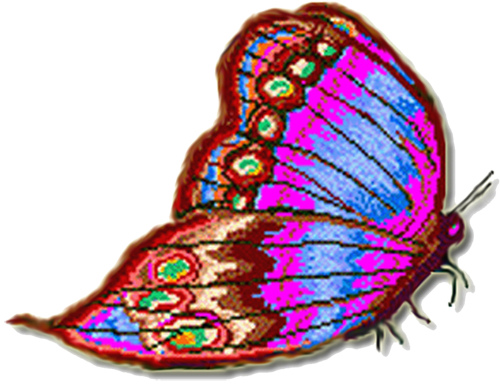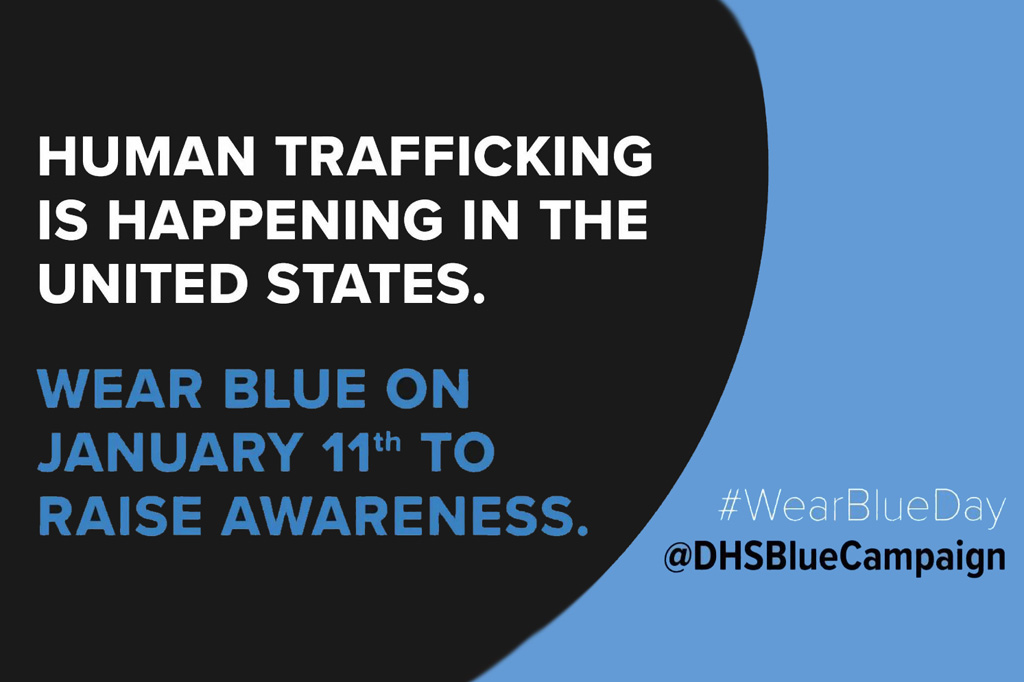On January 11, National Human Trafficking Awareness Day, some of us did our part in raising awareness of the crime by wearing BLUE.
Why Blue? It is the international color of human trafficking awareness. NJSFWC president Shirley Holly suggests we wear our favorite blue article of clothing, take a picture of ourselves wearing it and post it on our preferred social media platform using the hashtag #WearBlueDay.
For the U.S. Department of Homeland Security’s Blue Campaign, combating human trafficking is a year-round effort. Follow @DHSBlueCampaign on Facebook, Twitter, and Instagram for more information about #WearBlueDay and Campaign efforts throughout the year.
January is Human Trafficking Month
Human trafficking, also known as trafficking in persons, is a crime that involves compelling or coercing a person to provide labor or services, or to engage in commercial sex acts. The coercion can be subtle or overt, physical or psychological. Exploitation of a minor for commercial sex is human trafficking, regardless of whether any form of force, fraud or coercion was used.
Trafficking does not need to involve the physical movement of a person. Trafficking victimization can be transnational or domestic.
Signs of human trafficking:
- Has a child stopped attending school?
- Has the person had a sudden or dramatic change in behavior?
- Is a juvenile engaged in commercial sex acts?
- Is the person disoriented or confused, or showing signs of mental or physical abuse?
- Does the person have bruises in various stages of healing?
- Is the person fearful, timid, or submissive?
- Does the person show signs of having been denied food, water, sleep, or medical care?
- Is the person often in the company of someone to whom he or she defers? Or someone who seems to be in control of the situation, e.g., where they go or who they talk to?
- Does the person appear to be coached on what to say? Is the person living in unsuitable conditions?
- Does the person lack personal possessions and appear not to have a stable living situation?
- Does the person have freedom of movement? Can the person freely leave where they live? Are there unreasonable security measures?
There is so much information on this topic, this article could be pages long. To get help, and learn more about your options: The National Human Trafficking Hotline provides assistance to victims in crisis through safety planning, emotional support, and connections to local resources. Call 1.800.373.78888. To learn more visit www.humantraffickinghotline.org.

